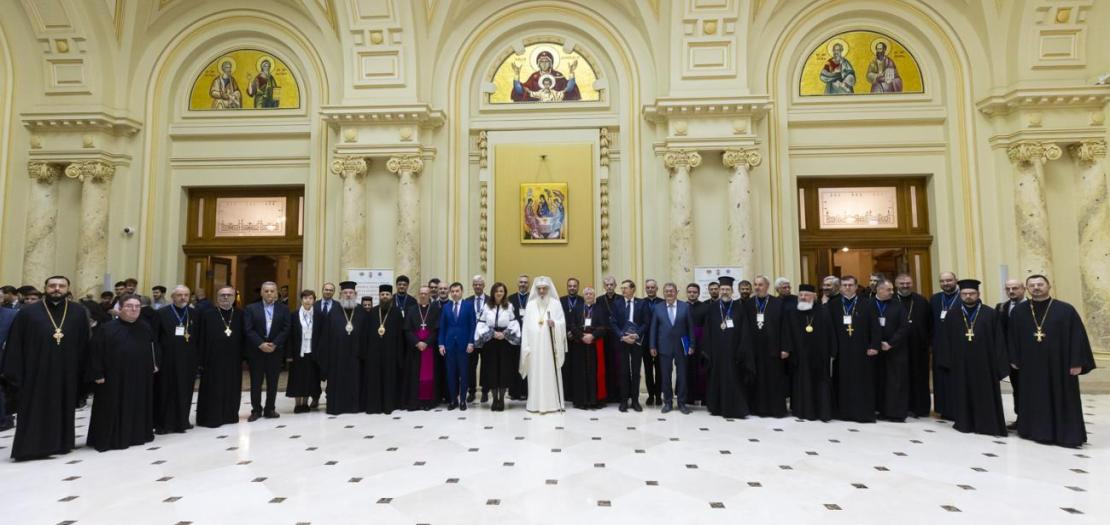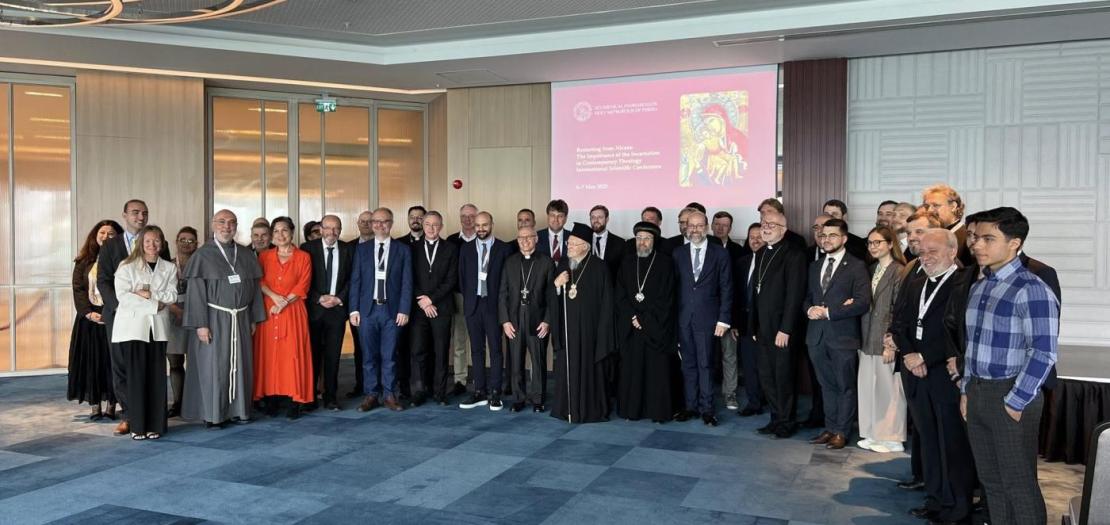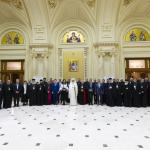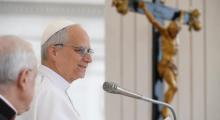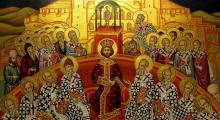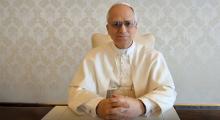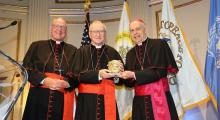Issued by the Catholic Center for Studies and Media - Jordan. Editor-in-chief Fr. Rif'at Bader - موقع أبونا abouna.org
Participants of the conference “Restarting from Nicaea: The Importance of the Incarnation in Contemporary Theology” in Antalya.
On the occasion of the1,700th anniversary of the First Ecumenical Council of Nicaea, the Holy Metropolis of Pisidia organized, in collaboration and with the support of Corpus International Association, in Antalya on 6-7 May, an international scientific conference entitled: “Restarting from Nicaea: The Importance of the Incarnation in Contemporary Theology.”
The conference began with the opening address of His All-Holiness Ecumenical Patriarch Bartholomew, who emphasized on the one hand that “speaking about God – theologizing – is a risky business” and reminded on the other that “the spirit of Nicaea must once again ignite the Christian message.”
The conference brought together 25 speakers from 11 different countries, scholars and pastors, eminent professors and young researchers, coming from different Christian churches, whose communications were of a high scientific level.
Participants discussed the importance and relevance of God’s incarnation for contemporary Christian theology in eight thematic panels.
The conference also emphasized the necessity of expanding the theological dialogue between the Orthodox Church and the Roman Catholic Church, as well as with other Christian Churches, recalling that the Council of Nicaea was a council of Christian unity.
From 14-17 May, an international symposium on Nicaea took place in Bucharest, organized by the Romanian Orthodox Church and the Faculty of Orthodox Theology "Justinian the Patriarch” University of Bucharest.
H.E. Metropolitan Prof. Dr. Job (Getcha), Metropolitan of Pisidia, and vice moderator of the WCC Commission on Faith and Order, spoke at both conferences. At the Bucharest conference, he reflected on “The Council of Nicaea and the Common Date of Pascha.”
The metropolitan noted that the purpose of the Nicaea council was to consolidate the unity of the church not only in matters of dogma, but also by introducing a common date for the Paschal celebration.
“Thus, at the Council of Nicaea, it was agreed to celebrate Easter on the Sunday after the full moon following the vernal equinox,” he said. “Rome used an 84-year cycle to determine the date of the full moon, while Alexandria used a more precise 19-year cycle.”
The Council of Nicaea was a council on the unity of the church, the metropolitan concluded. “The spirit of the decision of the Council of Nicaea can still inspire and enlighten Christians today who unfortunately still cannot celebrate Easter together,” he said. “The encyclical of Patriarch Joachim III of 1902 and the encyclical of the Ecumenical Patriarchate of 1920 had launched an appeal to the Churches to resolve this divergence.”


